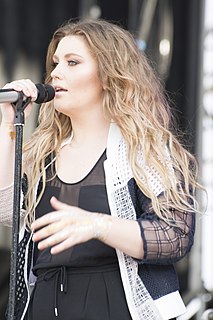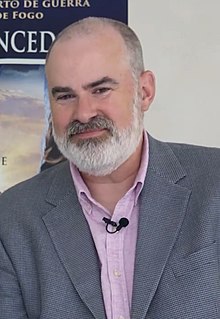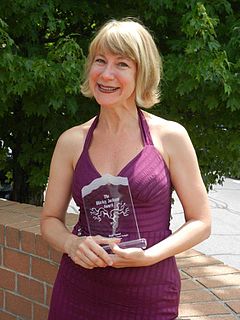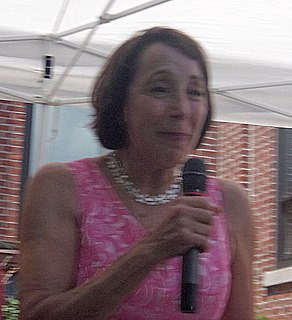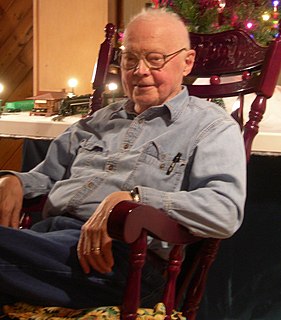A Quote by Hans Christian Andersen
Far away, where the swallows take refuge in winter, lived a king who had eleven sons and one daughter, Elise. The eleven brothers--they were all princes--used to go to school with stars on their breasts and swords at their sides. They wrote upon golden slates with diamond pencils, and could read just as well without a book as with one, so there was no mistake about their being princes. Their sister Elise sat upon a little footstool of looking-glass, and she has a picture-book which had cost the half of a kingdom. Oh, these children were very happy; but it was not to last thus forever.
Quote Topics
About
Away
Being
Book
Breasts
Brothers
Children
Cost
Could
Daughter
Diamond
Eleven
Elise
Far
Far Away
Forever
Glass
Go
Golden
Had
Half
Happy
Just
King
Kingdom
Last
Little
Lived
Looking
Mistake
Oh
Pencils
Picture
Princes
Read
Refuge
Sat
School
She
Sides
Sister
Sons
Stars
Swallows
Swords
Take
Thus
Used
Very
Very Happy
Well
Were
Which
Winter
Without
Wrote
Related Quotes
I can never understand why I should eat at one or sleep at eleven, if it is, as it often is, my one and my eleven and nobody else's. For, as between the clock and me alone, one and eleven and all other o'clocks are mine and I am not theirs. But I have known men and women living in hotels who would interrupt a sunset to go to dine, or wave away the stars in their courses to go to sleep, merely because the hour had struck.
I had to share a room with my sister, who is five and a half years older than I am. We didn't get along well, and I felt that I had no privacy. So books were my privacy, because no one could join me in a book, no one could comment on the action or make fun of it. I used to spend hours reading in the bathroom -- and we only had one bathroom in our small apartment!
One way to read the Book of Mormon is as a book of encounters between fathers and sons. Some of those encounters were very positive and reinforcing on the part of the father of a son. Some were occasions where a father had to tell his son or his sons that the path that they were following was incorrect before the Lord.
I felt that there were so many things that could go wrong, in adapting The Hunger Games , and I had this fierce desire to protect this book that she had written. At that time, I read the second book, in manuscript form, and so I saw where she was going with the series. I was able to convince Suzanne [Collins] to trust me with the books.
Wormholes were first introduced to the public over a century ago in a book written by an Oxford mathematician. Perhaps realizing that adults might frown on the idea of multiply connected spaces, he wrote the book under a pseudonym and wrote it for children. His name was Charles Dodgson, his pseudonym was Lewis Carroll, and the book was Through The Looking Glass.
At last, in the dead of the night, when the street was very still indeed, Little Dorrit laid the heavy head upon her bosom, and soothed her to sleep. And thus she sat at the gate, as it were alone; looking up at the stars, and seeing the clouds pass over them in their wild flight-which was the dance at Little Dorrit's party.
Well, at the end of our movie Fireproof, we released a book that my brother Stephen and I wrote called The Love Dare. It was for couples. That book had a much larger impact than we expected. As a matter of fact, if I could use the term "overwhelmed," we were. The book went on to become a New York Times bestseller and sold over five-million copies and is now in 28 different countries and languages. So, we were blessed and just surprised at how well that did.
If she'd spaced her children out and had eleven babies in eleven years, she would have been no better than her own mother and sisters: irresponsible, a welfare cheat, another bit of Sawdust Lane white trash. But as luck would have it, she'd had them all at once, and now she was, overnight, middle-class. And respectable.
When I was in fourth grade... this wonderful teacher said you didn't have to write a book report, you could just talk about the book, you could do a drawing of the book, you could write a play inspired by the book, and that's what I did. I got to be so famous. I had to go around to every school and perform it. It was just so natural and fun.
When Emily Dickinson's poems were published in the 1890s, they were a best-seller; the first book of her poems went through eleven editions of a print run of about 400. So the first print run out of Boston for a first book of poems was 400 for a country that had fifty million people in it. Now a first print run for a first book is maybe 2,000? So that's a five-time increase in the expectation of readership. Probably the audience is almost exactly the same size as it was in 1900, if you just took that one example.
I remember as a young child, during one of my frequent trips to the local library, spending hours looking at book after book trying in vain to find one that had my name on it. Because there were so many books in the library, with so many different names on them, I’d assumed that one of them — somewhere — had to be mine. I didn’t understand at the time that a person’s name appears on a book because he or she wrote it. Now that I’m twenty-six I know better. If I were ever going to find my book one day, I was going to have to write it.
Sometimes I'll say, "I wrote that book," and the person will look at you as if you're really strange. One time that happened to my daughter on a plane. She was sitting next to a girl who was reading one of my books and my daughter said, "My mother wrote that book." And the girl started to quiz my daughter, asking her all sorts of questions, like what are the names of Judy's children and where did she grow up. My daughter thought it was so funny.

